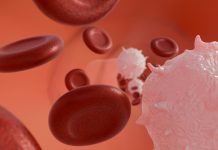New research highlights a crucial consideration for men battling prostate cancer, a potentially heightened risk of heart disease when certain medications are combined
Prostate cancer, affecting millions worldwide, often requires treatments that target testosterone, a hormone crucial for cancer growth.
Two main classes of drugs, Androgen Deprivation Therapies (ADT) and Androgen-Receptor Signaling Inhibitors (ARSIs), are used either alone or together to manage the disease. While these therapies have shown promise in extending survival rates, a recent study shows their significant impact on cardiovascular health.
Increased risk of cardiac events
A review of 24 clinical trials, involving over 22,000 men aged 63 to 77, revealed that combining ADT with ARSIs could double the risk of cardiac events. These events range from hypertension to severe conditions necessitating hospitalisation, such as cardiac arrhythmias, blood clots, heart attacks, or strokes.
The finding that using two specific ARSIs was particularly concerning, abiraterone acetate and enzalutamide, increased the risk of severe cardiac events by up to fourfold.
The study, spanning trials published between 2012 and 2024, analysed treatments across various stages of prostate cancer. It concluded that while intensified ADT can improve cancer outcomes, the cardiovascular risks must not be overlooked. Experts caution that men considering these treatments should be thoroughly evaluated for existing heart conditions and monitored closely throughout therapy.
Migrating affects
Many of these risks are manageable through lifestyle changes and targeted medical interventions. Measures such as maintaining a heart-healthy diet, regular exercise, and controlling blood pressure can significantly mitigate the potential adverse effects of these therapies.
In some cases, medications like statins may be prescribed to lower cholesterol levels and reduce cardiovascular risk.
The findings have prompted global expert groups to reconsider the use of certain combinations of ARSIs in prostate cancer treatment. The focus is shifting towards optimising therapy to balance cancer control with minimising cardiovascular harm. Patients and healthcare providers are urged to weigh the benefits against the risks carefully, tailoring treatment plans to individual health profiles.
As research continues to evolve, the emphasis remains on personalised medicine and comprehensive patient care. By integrating cardiac health assessments into prostate cancer management strategies, clinicians aim to enhance overall outcomes and quality of life for men navigating this challenging diagnosis.
In conclusion, while advancements in prostate cancer therapy offer new hope, the dual challenge of cancer control and cardiovascular safety underscores the need for informed decision-making and vigilant health management.











